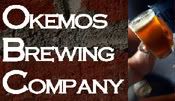 When Tuesday's mail arrived here at the Kelley home - it included a package for me from my brother Brian.
When Tuesday's mail arrived here at the Kelley home - it included a package for me from my brother Brian.Inside was a copy of Bob Stroud's latest Rock 'N Roll Roots CD - Volume 9 - which has been for sale in Borders Book Stores in the Chicago area for a couple of weeks now.
 Bob does middays on classic rock/classic hits WDRV/Chicago; and if you're a regular reader to this blog you might also know he produces and hosts a program airing Sunday Mornings called "Rock 'N Roll Roots".
Bob does middays on classic rock/classic hits WDRV/Chicago; and if you're a regular reader to this blog you might also know he produces and hosts a program airing Sunday Mornings called "Rock 'N Roll Roots".The show focuses on the music that made an impact on the Chicago AM & FM dials in the 60s and 70s. The stuff I heard growing up in suburban Chicago.
The show is a labor of love for Stroud - something he started after joining Chicago's WMET in 1979. A history of Bob's journey up and down the dial is documented here.
 The annual CD project features the music thats played each week on the show - a good chunk of it appearing for the first time on compact disc.
The annual CD project features the music thats played each week on the show - a good chunk of it appearing for the first time on compact disc.The album artwork is excellent too - acknowledging Chicago's musical heritage. Inside - the liner notes document the airplay each song received on the local airwaves back in the day. Very cool!
Bob explained the process to me in a recent email:
 "Every April I solicit for suggestions from "The Stroud Crowd" for the upcoming Rock 'n Roll Roots CD release. At the end of the month, I tally up the votes and try to license the songs that received the most votes. Every year over 500 different titles are submitted!"
"Every April I solicit for suggestions from "The Stroud Crowd" for the upcoming Rock 'n Roll Roots CD release. At the end of the month, I tally up the votes and try to license the songs that received the most votes. Every year over 500 different titles are submitted!""We work with SRO in Minneapolis who do all the leg work of tracking down the songs and their publishers. Each year we press up 5,000 copies and retail them at Chicagoland Borders locations. When they're gone, they're gone. I've seen Volumes 1 through 3 goes as high as $75 on E-Bay! Previous Volumes are also for sale through sellers on Amazon."
 "This year was the 1st year that we couldn't license a song that had never been on CD before. Volumes 1 through 8 all had songs that hadn't appeared on CD before, most were midwest hits from Chicago bands that were played frequently on WCFL and WLS."
"This year was the 1st year that we couldn't license a song that had never been on CD before. Volumes 1 through 8 all had songs that hadn't appeared on CD before, most were midwest hits from Chicago bands that were played frequently on WCFL and WLS."Since 2002, WDRV has donated at least $60,000 to charities from sales of the Rock & Roll Roots CDs - and each year its been a different charity:
 "It has been a different charity every year while here at The Drive. We try to select one that has a music angle for obvious reasons."
"It has been a different charity every year while here at The Drive. We try to select one that has a music angle for obvious reasons.""Children's Home + Aid offers music lessons, amongst many other academic offerings to children who come from needy families. They are also the charity that has been closely associated over time with this year's corporate sponser, Merlin's 200,000 Mile Shops."
Congrats to Bob and the staff at WDRV. The CD is not only a great charity project - but one that reinforces the passion for the station's music and its relationship with audience and the City of Chicago.
 I've observed (from afar) others attempting to duplicate WDRV's format in other markets - even calling their station "The Drive". And most have failed - not understanding the attributes that have made WDRV a success.
I've observed (from afar) others attempting to duplicate WDRV's format in other markets - even calling their station "The Drive". And most have failed - not understanding the attributes that have made WDRV a success.
And the first mistake imitators make is using the name "The Drive"; its a name that is uniquely Chicago and loses all significance almost everywhere else. There's only one "Drive".
 I've observed (from afar) others attempting to duplicate WDRV's format in other markets - even calling their station "The Drive". And most have failed - not understanding the attributes that have made WDRV a success.
I've observed (from afar) others attempting to duplicate WDRV's format in other markets - even calling their station "The Drive". And most have failed - not understanding the attributes that have made WDRV a success. And the first mistake imitators make is using the name "The Drive"; its a name that is uniquely Chicago and loses all significance almost everywhere else. There's only one "Drive".



